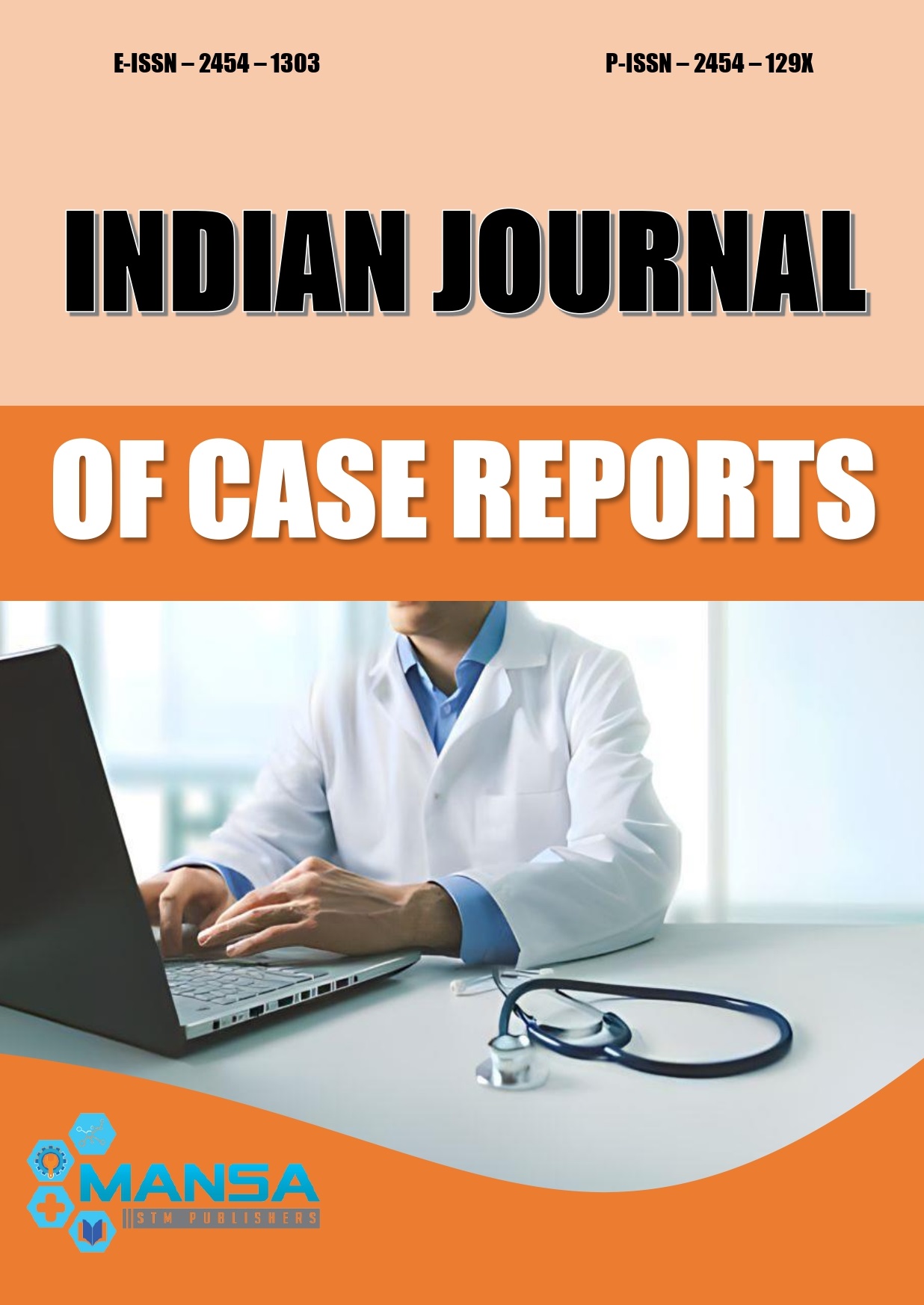Developmental persistent falcine sinus with cranium bifidum occultum, craniosynostosis, and associated anomalies: A unique case
Keywords:
Associated anomalies, cranium bifidum occultum, persistent falcine sinusAbstract
The falcine sinus is an intrauterine anatomic structure located in the falx cerebri that is closed after birth and persistence of this
embryologic falcine sinus is considered as a rare variation of the venous pathway which is associated with defect in the development
of the straight sinus leading to formation of an alternate venous pathway served by the persistent falcine sinus. Cranium bifidum
occultum is another rare skull ossification disorder referred to as the Catlin mark characterized by ossification defects in the
parietal bones. Many other associated anomalies can be seen with persistent falcine sinus apart from cranium bifidum occultum
which include absent or dysplastic tentorium cerebelli, agenesis of the corpus callosum, apert syndrome, atretic occipital/parietal
encephalocele, vein of galen malformation, osteogenesis imperfecta, and chiari malformation Type II. We describe a rare case of a
10-year-old girl who presented with short stature, intermittent headache, and abnormal skull shape. On radiological examination,
persistent falcine sinus was detected with large midline skull defect at the high parietal area. The straight sinus was absent, and there
was dysplastic tentorium cerebelli. In addition to these, craniosynostosis was also present with many other associated anomalies.
Persistent falcine sinus and cranium bifidum occultum are very rare, and when found, they are associated with many anomalies
raising the possibility that they may represent the benign end of the same developmental spectrum. To the best of our knowledge,
these constellations of anomalies have been reported in very few children.
Downloads
Downloads
Published
Issue
Section
License

This work is licensed under a Creative Commons Attribution-NonCommercial-NoDerivatives 4.0 International License.

